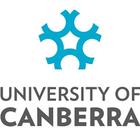Graduate Certificate in International Development (336JA.1)
- Posted by University of Canberra
- Home
- Courses
- University of Canberra
- Graduate Certificate in International Development (336JA.1)
Graduate Certificate in International Development (336JA.1)
If you see yourself enriching the lives of people around the globe, or if you are working in a development-adjacent industry and are looking to upskill, then the Graduate Certificate in International Development will give you a nuanced understanding of the ways in which theories of development connect with development…
Categories
COURSE DESCRIPTION
If you see yourself enriching the lives of people around the globe, or if you are working in a development-adjacent industry and are looking to upskill, then the Graduate Certificate in International Development will give you a nuanced understanding of the ways in which theories of development connect with development politics and practices.
You will study a range of compelling topics around development, including gender issues, the role of corporations, poverty, sustainability, global health issues, and post-conflict reconstruction. You will learn how to plan and/or manage an international development project based on curricula that has been designed in collaboration with current industry practitioners. Your core skills will be strengthened for a career in the public development sector or in multinational organisations across Australia and abroad.
Study a Graduate Certificate in International Development at UC and you will:
develop the skills to critically engage with contemporary theories and practices in development studies
understand changes in development theory and trends in practice as they apply to local and global development processes
gain the skills to reflect on your own practice and articulate an ethical approach to international development that considers cultural, social and environmental elements.
Work Integrated Learning
You will have extensive opportunities to undertake real-world assessments, study live case studies, and explore industry-linked research projects. The course is intrinsically connected to the international development sector, with regular involvement from organisations including the Department of Foreign Affairs and Trade, Care Australia, UNESCO, United Nations Development Programme and international embassies based in Canberra.
Career opportunities
International consultant
Program director
International aid worker
Campaign director
International project manager
Head of fundraising
International development worker
Community development educator
Gender adviser
M&E (monitoring and evaluation) manager
Program specialist
Program analyst
Program coordinator
Social impact assessment consultant
Project manager
Course-specific information
Successful completion of this course can lead you to admission for the Graduate Diploma and/or Master of International Development.
EDUCATIONAL INSTITUTION
Dynamic and vibrant, the University of Canberra (UC) is based in Canberra, the Australian capital. UC is a university for the professions, dedicated to providing immersive student experiences focused on employability outcomes. It is number one in the ACT for graduate employment and salaries for three years in a row (Good Universities Guide 2019-21), in the top one per cent of universities worldwide (The Times Higher Education World University Rankings 2021) and one of the fastest rising in the world (QS 2021). Its location and its regional connections shape the university’s purpose.
Dynamic and vibrant, the University of Canberra (UC) is based in Canberra, the Australian capital. UC is a university for the professions, dedicated to providing immersive student experiences focused on employability outcomes. It is number one in the ACT for graduate employment and salaries for three years in a row (Good Universities Guide 2019-21), in the top one per cent of universities worldwide (The Times Higher Education World University Rankings 2021) and one of the fastest rising in the world (QS 2021). Its location and its regional connections shape the university’s purpose.




